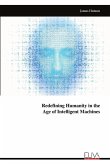Machines that recognize, imitate, and perhaps even influence emotions-what sounds like science fiction has long been part of our everyday lives. Voice assistants respond to frustration, care robots offer comfort, and social media deliberately amplify our outrage. But what does it mean when technology touches on the most sensitive areas of human existence? This book introduces readers to the fascinating and unsettling world of artificial emotions. It explains the psychological and neurobiological foundations of feelings, shows how AI analyzes them today using language, facial expressions, and sensors, and describes how machines convincingly simulate empathy. In doing so, it becomes clear that users often find it difficult to distinguish between genuine compassion and perfect simulation. The focus is not only on opportunities-for example, in medicine, care, education, and art-but also on the dangers: emotional surveillance in the workplace, manipulative advertising, political instrumentalization, and the possible loss of authenticity in human relationships. Philosophical and ethical reflections pose the big question: Can machines feel at all-or are we deceiving ourselves? Between enthusiasm and skepticism, between utopia and dystopia, the book paints a comprehensive panorama of one of the most exciting topics of our time. It invites us to reconsider the role of emotions in a world of artificial intelligence - critically, interdisciplinarily, and with a touch of humor. Bremen University Press has published over 5,000 specialist books in various languages since 2005.
Bitte wählen Sie Ihr Anliegen aus.
Rechnungen
Retourenschein anfordern
Bestellstatus
Storno








